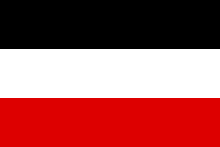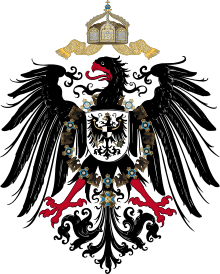Government General of Warsaw
| General Governorate of Warsaw | ||||||||||
| Generalgouvernement Warschau (German) Generalne Gubernatorstwo Warszawskie (Polish) | ||||||||||
| ||||||||||
| ||||||||||
The Government General of Warsaw, depicted in light blue. | ||||||||||
| Capital | Warsaw | |||||||||
| Languages | German, Polish | |||||||||
| Government | Occupation authority | |||||||||
| Governor General | ||||||||||
| • | 1914 | Hans Hartwig von Beseler | ||||||||
| History | ||||||||||
| • | Established | 18 October 1915 | ||||||||
| • | Armistice, withdrawal of German forces | 11 November 1918 | ||||||||
| ||||||||||
| Today part of | | |||||||||
The General Government of Warsaw (German: Generalgouvernement Warschau) was an administrative civil district created by the German Empire in World War I.[1] It encompassed the north-western half of the erstwhile Russian-ruled Vistula Land (Congress Poland).[1]
Although the territory initially formed a part of the Ober Ost military command under the authority of general Erich Ludendorff, after the military advances of the Central Powers in the fall offensive of 1915 the territory came under a separate administration in October.[1] It continued to exist even after the later establishment of a rump Kingdom of Poland, a Central Powers puppet state. Its governor-general, Hans Hartwig von Beseler, held his office for the entire duration of the region's existence. The headquarters of the General Government operated in the Royal Castle, Warsaw, while the governor-general's seat was in the Belvedere palace, Warsaw.[2]
To the south of the General Government lay an Austro-Hungarian-controlled counterpart called the Military Government of Lublin.[1]

On 18 October 1916 a joint administration was introduced for both districts of the former Congress Poland, with a German civil-servant, Wolfgang von Kries, appointed as the first chief of the intended administration. On 9 December, Kries founded a Polish central bank, which issued a new currency, the Polish mark (Marka polska).
During the occupation German authorities drafted Poles into forced labor to replace German workers drafted into the army.
Chiefs of Joint Administration:
- Wolfgang von Kries (18 October 1915 - 26 November 1917)
- Otto von Steinmeister (26 November 1917 - 6 October 1918)
See also
- Ober Ost
- Kingdom of Poland (1916-1918)
- Polish Border Strip
- Eastern Front (WWI)
- General Governorate of Belgium

